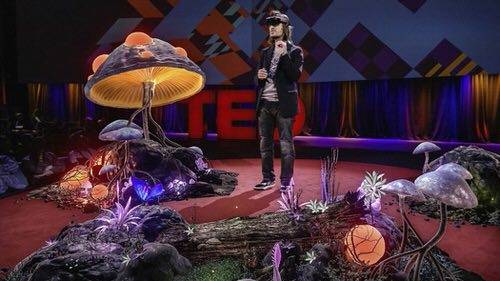The boundaries of digital storytelling are expanding in Oregon as Portland’s creative scene dives into the potential of Microsoft’s HoloLens augmented reality (AR) technology.
The Oregon Story Board (OSB), an organization that supports the state’s digital storytelling economy, is launching Portland as a hub for AR production. Notably, the OSB is the first non-profit in the U.S. to offer training in producing content for Microsoft’s HoloLens AR headset.
“HoloLens is the absolute ‘state-of-the-art,’ for the next wave of human-computer interaction,” says HoloLens instructor Thomas Wester. “If you’re a designer, or a developer and want to figure out what is coming next, this is the space you want to be.”
Michael Hoffman, formerly the principal engineering lead at Microsoft and founder of Object Theory – a startup founded in 2015 to develop HoloLens applications – says the strength of technology like this is in the potential for shared experiences.
“HoloLens has Wi-Fi, it can easily communicate with other HoloLenses,” he said in an interview with The Register. “So teams can be anywhere, walk around a shared model and have conversations about it.
Object Theory focuses mainly on virtual design – like Wester points out – and the construction sector, where the same kind of creativity in imagining a reworked space is critical.
“We learned that the designs the engineers made aren’t the ones the construction team uses, they make their own derived from them, with a lot more detail,” said Hoffman. “There are a lot of error-prone steps, and errors are very costly. The HoloLens makes it easy to have a conversation around something that’s three-dimensional.”
AR differs from its cousin virtual reality (VR) by combining real-world sensory information with computer generated content via wearable headsets. Meanwhile, VR’s environments are completely computer-generated.
HoloLens can empower next generation of artists
“We see extraordinary economic potential in AR and VR development,” says OSB chair Tawny Schlieski, who is also Intel’s Research Director of Client Computing. She adds that the goal of the HoloLens training is aimed at “empowering the next generation of artists and entrepreneurs to explore this exciting new technology.”
This AR technology has commercial applications among corporations and entrepreneurs for uses such as branding, marketing and content creation, said the OSB.
The new HoloLens training program follows OSB’s educational research grant from Microsoft in 2015 for developing trade-based education for HoloLens technology. OSB partnered with Intel and Clackamas Community College for the research program.





















